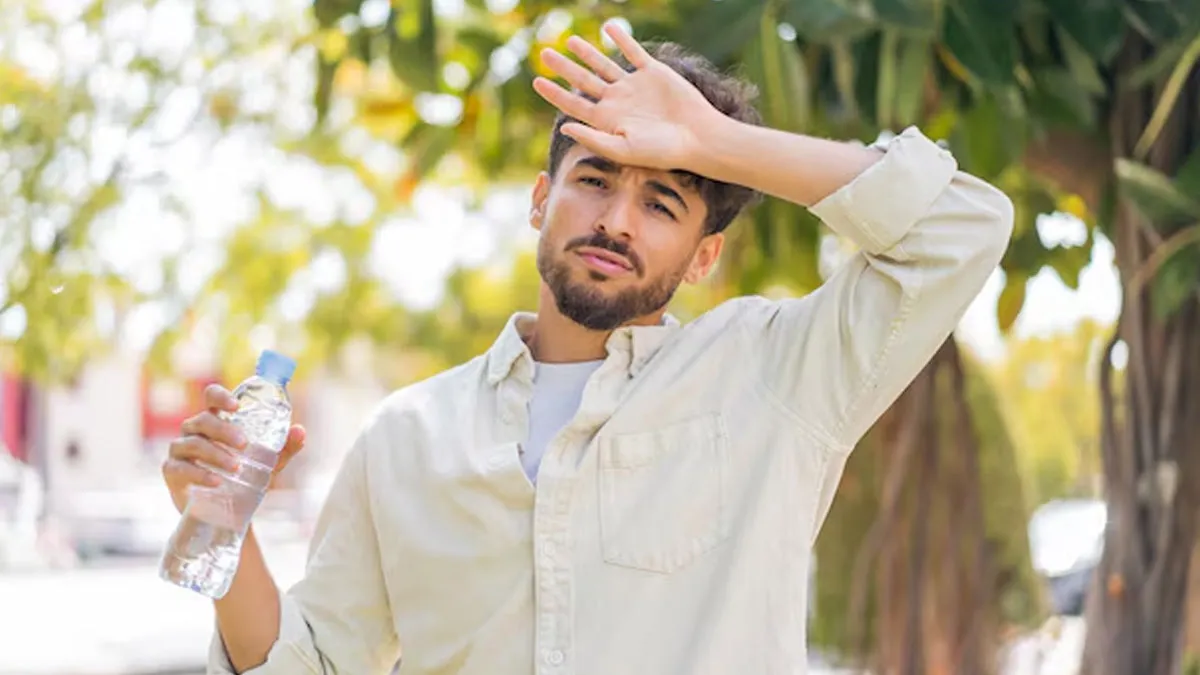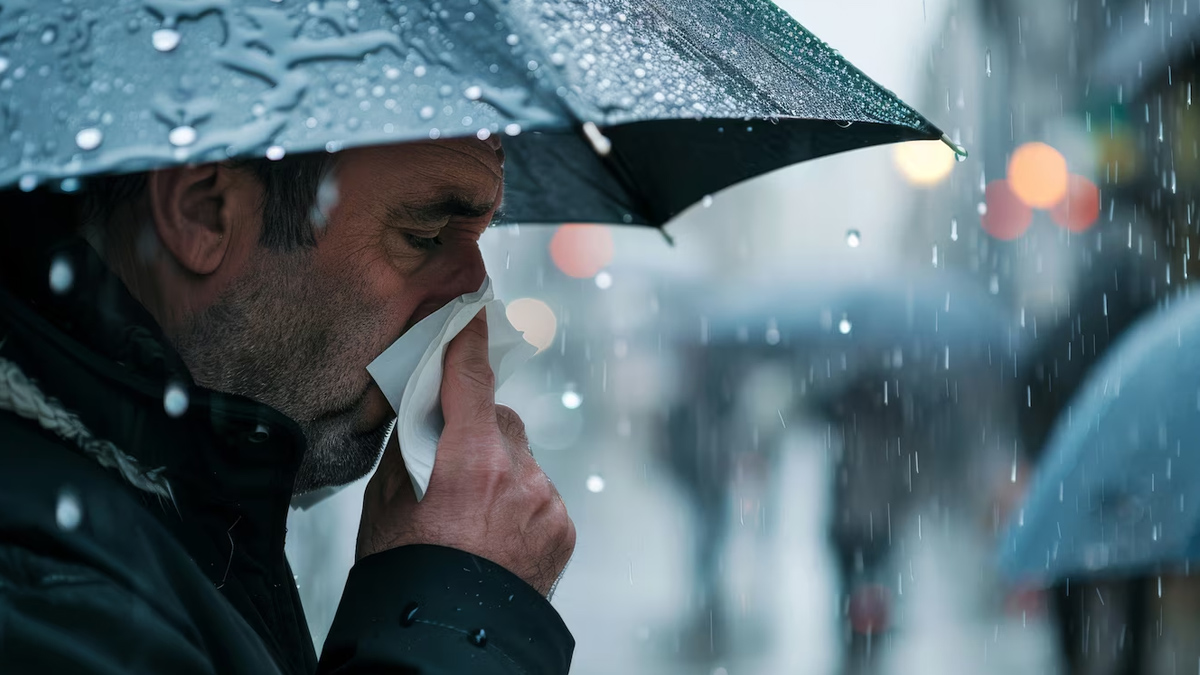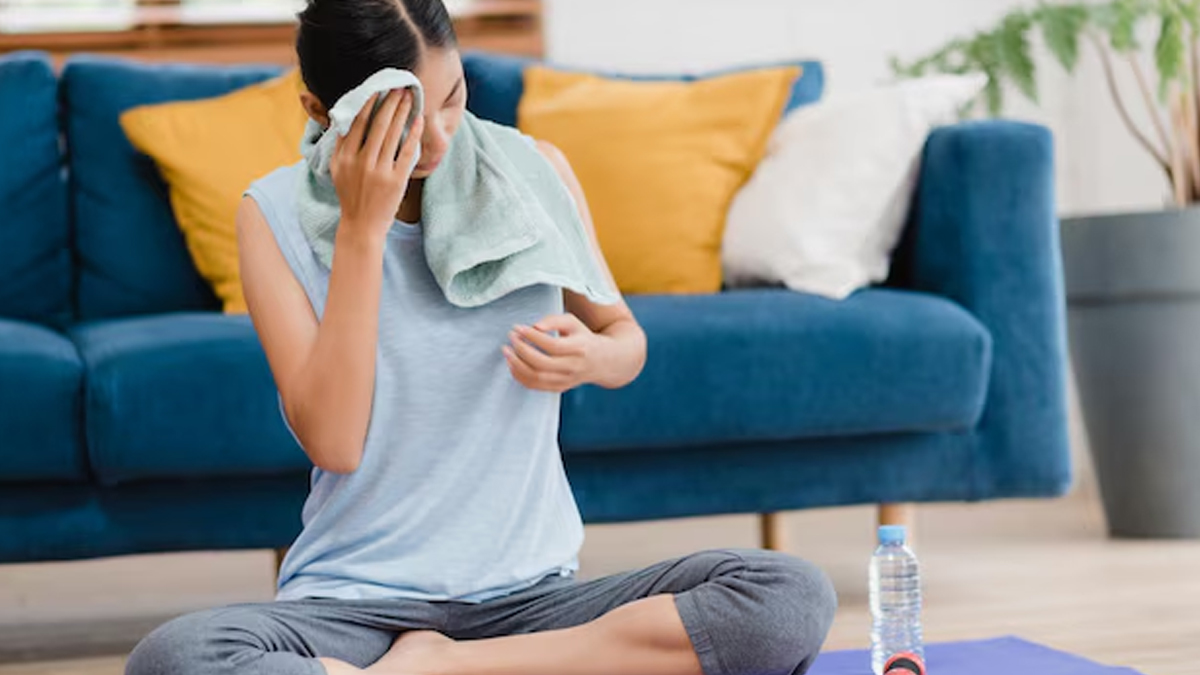
The monsoon has hit most of India, and while it has provided some relief from the heat, it has also increased humidity levels in the air. However, the sticky, uncomfortable feeling is the least of your worries, as extreme humidity levels can also harm your health.
Table of Content:-
In an interaction with the OnlyMyHealth team, Dr Manish Maheshwari, Consultant Internal Medicine, Narayana Hospital, Ahmedabad, sheds light on the health risks associated with high humidity and ways to reduce that risk.
Also Read: Monsoon Skincare Guide: 7 Tips To Prevent Acne, Infections and Dullness
How High Humidity Levels Impact Your Health

High humidity means the air contains a large amount of moisture, making it harder for sweat to evaporate. You may sense a feeling of wetness and dampness that can be highly uncomfortable. “This disrupts the body’s cooling system,” says Dr Maheshwari. As a result, people may experience overheating, heat stress, excessive sweating, dehydration, and even breathing difficulties. In more severe cases, individuals might feel fatigued or weak, especially if they stay outdoors for extended periods during peak humidity hours.
A 2023 study published in the International Journal of Molecular Sciences, both high and low humidity can affect health. When relative humidity is too low, it can cause dryness and irritation of the respiratory tract and skin, making people more prone to infections. On the other hand, when humidity is too high, it can create a damp environment that encourages the growth of harmful microorganisms like mold, bacteria, and viruses.
Signs High Humidity Level Is Making You Sick

The body’s response to excess moisture in the air can manifest in various ways. Dr Maheshwari lists some common symptoms:
- Skin issues such as heat rashes, fungal infections, and acne flare-ups
- Respiratory distress in individuals with asthma or chronic lung conditions
- General discomfort, including dizziness, headaches, nausea, and a rapid pulse
- Excessive sweating that leads to dehydration and fatigue
“People with asthma or Chronic Obstructive Pulmonary Disease (COPD) are especially vulnerable during this season, as breathing becomes more difficult when humidity is high,” he adds.
Who Is At Risk?
Anyone can be affected by high humidity, but certain groups are more vulnerable. This includes:
- People with chronic respiratory conditions like asthma and COPD
- The elderly and very young children
- Individuals who spend a lot of time outdoors
- Those with compromised immune systems
Also Read: Monsoon Triggers: Natural & Homoeopathic Remedies for Asthma
How To Reduce Your Risk

To manage and reduce humidity-related health risks, Dr Maheshwari recommends the following precautions:
- Stay hydrated: Drink plenty of fluids to prevent dehydration.
- Wear loose, breathable clothing: Prefer cotton or moisture-wicking fabrics.
- Keep skin folds dry: Use talcum powder if necessary and maintain good hygiene.
- Avoid outdoor activity during peak humidity hours, especially in the afternoon.
- Ensure good ventilation at home to reduce moisture buildup.
Conclusion
While you can't control the weather, you can take steps to safeguard your health. Understanding how your body responds to humidity and making small lifestyle adjustments can go a long way in preventing heat stress and other related conditions during the monsoon season.
Also watch this video
How we keep this article up to date:
We work with experts and keep a close eye on the latest in health and wellness. Whenever there is a new research or helpful information, we update our articles with accurate and useful advice.
Current Version